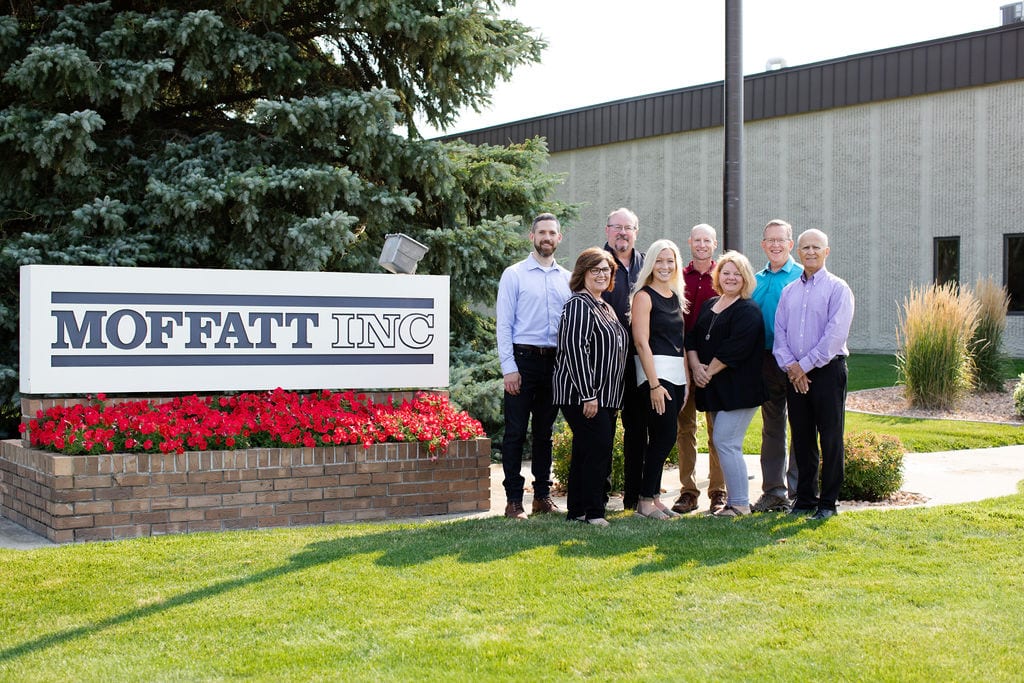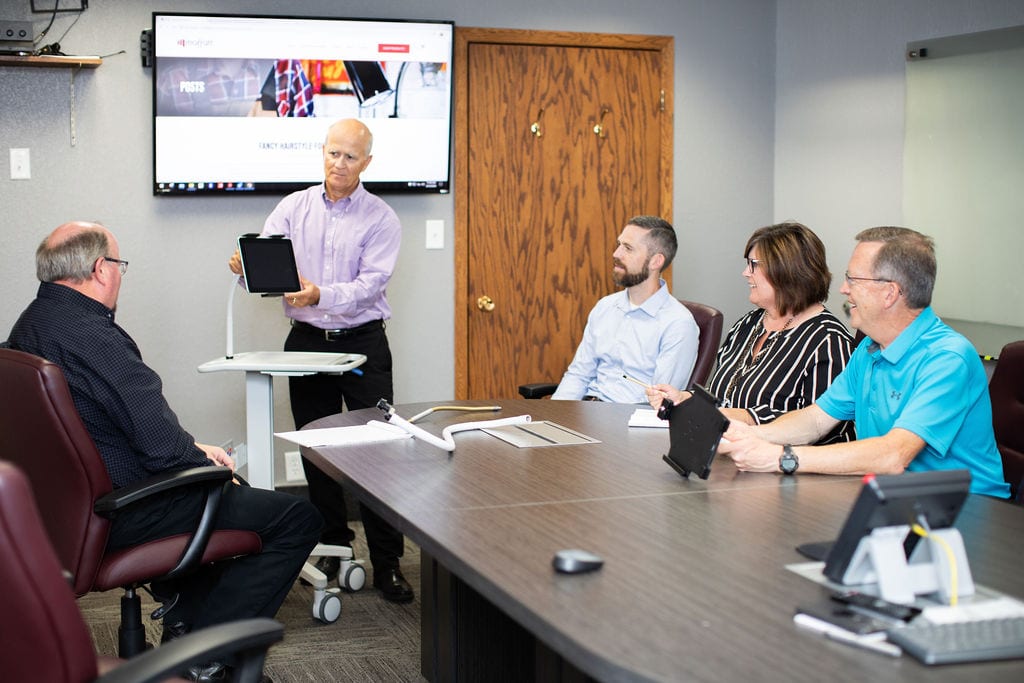Why our work culture might matter to you, our clients, and our vendors.

Share:
We call ourselves a family company. Here’s what that actually means for us today, tomorrow, and every day after that.
The author and speaker Gustavo Grodnitzky, Ph.D. has a theory on why businesses succeed or fail that might surprise you: it doesn’t have to do with traditional business values like growth or profit; it has to do with culture. In his TED talk, he speaks about how our culture informs our beliefs and that CULTURE, not a profit-driven model, is what ultimately determines success.
Gustavo’s talk resonated with us. That said, it’s not an easy culture to fake, it has to be grown organically from a seed. That means internalizing these ethics from the start and integrating them from the leadership team on down. Part of that has developed from how we started: as a family company. We know everyone who works here well, they’re friends and family.
It also means that as we grow and evolve, we need to emphasize these beliefs and not forget where we came from. That’s been a point of emphasis for our new president, Mark Moffatt, whose background both inside and outside the Moffatt company culture has helped him understand the importance of work culture.
“My passion is to cultivate a healthy organizational culture along the way to pursuing more growth with innovative solutions at Moffatt Products,” Mark says. “My athletic training education and experiences taught me to keep calm under pressure and weigh short-term needs against long-term outcomes. I feel those familiar dynamics in manufacturing design projects. I have to get the designs right as quickly as possible and plan for the long term to keep those items supplied on time and profitable.”
A close/healthy team communicates well and solves problems quickly.

A healthy culture doesn’t just provide immediate benefits to our employees; it extends to everyone we work with, including vendors and customers. Publicly traded companies tend to measure success or failure with shorter-term metrics that primarily matter to shareholders. Shareholders are interested in increasing profits and valuation – even at the expense of culture as experienced by employees, vendors, and customers.
As a privately held family business, we like to think of every person we come in contact with as stakeholders. Every stakeholder is part of the success or failure of the company, and we aim to add value to every single one whether they be employees, vendors, customers, or owners. How do we start? It’s simple. We treat folks with respect, knowing it will add value to their lives and recognizing they each add their own value to the company.
“Every customer, vendor, and employee wants to be treated with respect and expects our team to give their best performance every day,” Mark says. “It’s exciting to create new products and rewarding to build a solid team and company culture that adds value to all stakeholders.”
Every stakeholder benefits: customers, vendors, and our team.
So what does that mean for you? Let’s break down our stakeholders group by group so you can see what we mean.
Our customers

As a smaller company, it behooves us to have a great culture when we work with you. Why? It makes us flexible and nimble. We’ve learned that all communication, even quality issues or bad news, is best served hot (right away), so we can quickly get to solving the problem. We’re able to get decision-makers together quickly and respectfully to make choices that will help you get your products out the door. For us, working with our clients is a collaborative process – we want to make sure that we’re all on the same page from day one. That can only happen when we have good, honest, and respectful communication.
When you work with Moffatt, you’re one of us. We always want to treat you with respect so that you and your team will feel you’re able to bring new and exciting ideas to us. We’ve been so grateful for all of our new clients and projects in the past few years and we know that THE most important part of getting a great outcome has been creating a great process. That starts with our culture.
Our vendors
If the COVID pandemic taught us anything, it’s that having a great relationship with your vendors is of the utmost importance. We can’t do what we do without them. It’s easy to show that respect when things are easy, but you don’t measure culture by just talking about the good times. It’s borne out in the harder times as well.
We always want to stick up for our vendors’ interests, knowing that if we are constantly pressuring them to do us favors, we’re like the boy who cried wolf. If we keep pressing that button, it’s only natural that our level of service actually declines over time. Instead, we value and appreciate what our vendors provide – and you know what? They appreciate it.
We were so grateful to our vendors during the pandemic. Each one went above and beyond to help us meet our goals which, in turn, helped us meet our clients’ goals. We absolutely don’t take that for granted. The relationships that we’ve built are founded on respect and excellence – that means in good times and bad.
Our team
Ultimately, we need to be accountable to ourselves. That means everyone, from the leadership team, to the folks who work on the line to our families who support us. It’s not always easy. In fact, maintaining strong relationships in both/all directions takes a lot more work and time and even means that most profits/investments go back into the company – but we do this for a reason.
We reinvest heavily into the future health and sustainability of our company because we know that when fundamental human desires are nurtured in a healthy culture, it will help us survive and thrive. Ultimately, we don’t want to focus on short-term metrics but on long-term investment and sustainability. It’s our goal to be a dependable supplier for years (and even generations) to come.
Does that mean working with you? We absolutely hope it does. Come see how culture shapes everything we do.
